York researchers heat storage to speed up data
Magnetic recording of data is set to be revolutionised, thanks to new research from the University of York.


Researchers today revealed a new technique of recording data magnetically, which they claimed would make the process "hundreds of times faster" than current hard drives.
The four year study was led by the University of York's physics department, partnering with Radboud University in Nijmegen, and involved a close working relationship with Seagate.
It claimed recording data by using heat would improve both speed and energy efficiency when it comes to writing data onto storage.
For centuries it has been believed that heat can only destroy the magnetic order.
Today's storage technology uses the standard magnetic theory of North and South poles of a magnet being attracted to each other, with the same directional poles repelling one another. Then, by introducing a third magnetic field, the poles are inverted and write a piece of data to the storage.
By increasing the strength of the third magnet, the speed of the information being written could be ramped up.
The new research shows, rather than adding a third magnetic field, heat could be added in the form of a ultrashort heat pulse' and have a much stronger reaction, speeding up data recording hundreds of times over.
Sign up today and you will receive a free copy of our Future Focus 2025 report - the leading guidance on AI, cybersecurity and other IT challenges as per 700+ senior executives
"For centuries it has been believed that heat can only destroy the magnetic order," said Dr Alexey Kimel, from the Institute of Molecules and Materials at Radboud University, who also took part in the research.
"Now we have successfully demonstrated that it can, in fact, be a sufficient stimulus for recording information on a magnetic medium."
Professor Roy Chantrell, from the department of physics at York, told IT Pro a new project to extend the research had already received funding and will start in the next few months, but it will be some time until the technologies hit the market.
"The next phase of magnetic recording technology will be Heat Assisted Magnetic Recording, where a laser is used to heat the medium to allow recording to take place," he said.
"This will span up to maybe 10 years, after which new technologies, such as our proposed approach, will be needed."
The research has been published in February's Nature Communications journal.
Jennifer Scott is a former freelance journalist and currently political reporter for Sky News. She has a varied writing history, having started her career at Dennis Publishing, working in various roles across its business technology titles, including ITPro. Jennifer has specialised in a number of areas over the years and has produced a wealth of content for ITPro, focusing largely on data storage, networking, cloud computing, and telecommunications.
Most recently Jennifer has turned her skills to the political sphere and broadcast journalism, where she has worked for the BBC as a political reporter, before moving to Sky News.
-
 The open source ecosystem is booming thanks to AI, but hackers are taking advantage
The open source ecosystem is booming thanks to AI, but hackers are taking advantageNews Analysis by Sonatype found that AI is giving attackers new opportunities to target victims
-
 Westcon-Comstor enters Balkan market with REAL Security acquisition
Westcon-Comstor enters Balkan market with REAL Security acquisitionNews The acquisition gives the distribution giant immediate access to an established partner ecosystem spanning eight Balkan markets
-
 Datadog Database Monitoring extends to SQL Server and Azure database platforms
Datadog Database Monitoring extends to SQL Server and Azure database platformsNews The tool offers increased visibility into query-level metrics and detailed explanation plans
-
 Oracle and Microsoft announce Oracle Database Service for Azure
Oracle and Microsoft announce Oracle Database Service for AzureNews Azure users can now easily provision, access, and monitor enterprise-grade Oracle Database services in Oracle Cloud Infrastructure
-
 Elastic expands cloud collaboration with AWS
Elastic expands cloud collaboration with AWSNews Partnership aims to ease migration to Elastic Cloud on AWS, as well as simplify onboarding and drive go-to-market initiatives
-
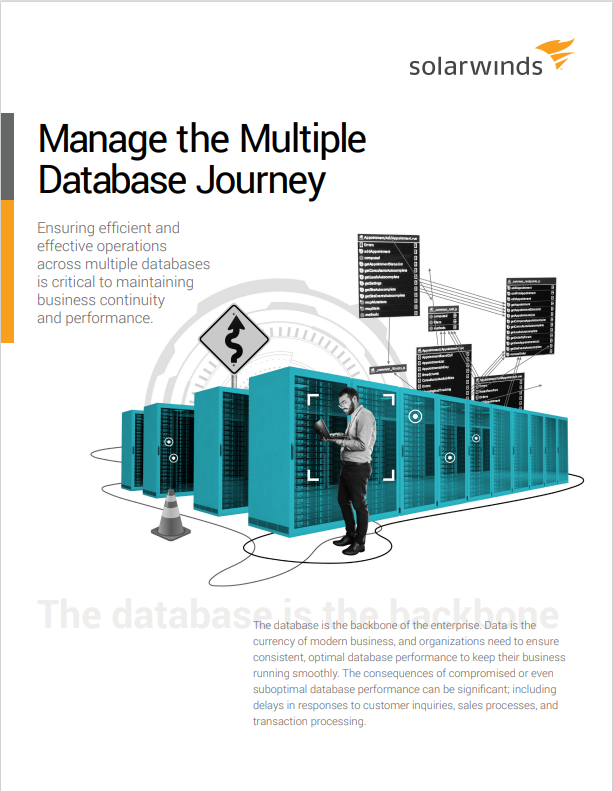 Manage the multiple database journey
Manage the multiple database journeyWhitepaper Ensuring efficient and effective operations across multiple databases
-
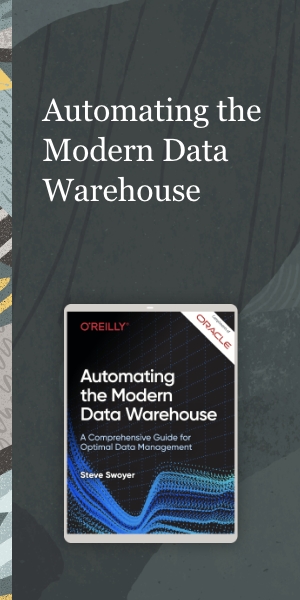 Automating the modern data warehouse
Automating the modern data warehouseWhitepaper Freedom from constraints on your data
-
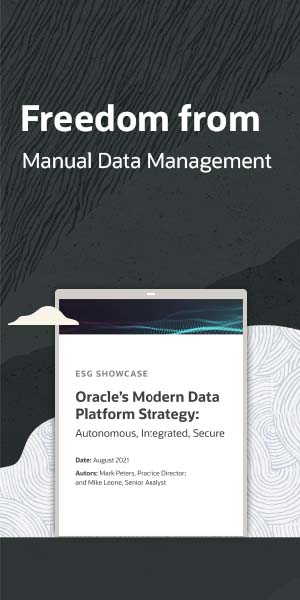 Freedom from manual data management
Freedom from manual data managementWhitepaper Build a data-driven future with Oracle
-
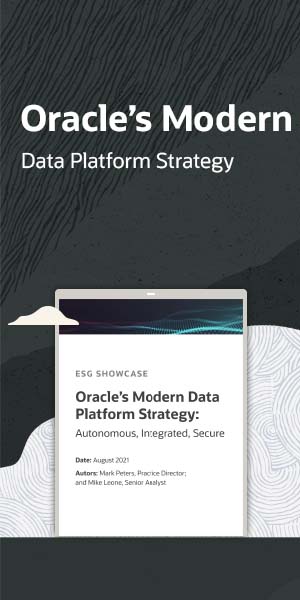 Oracle’s modern data platform strategy
Oracle’s modern data platform strategyWhitepaper Freedom from manual data management
-
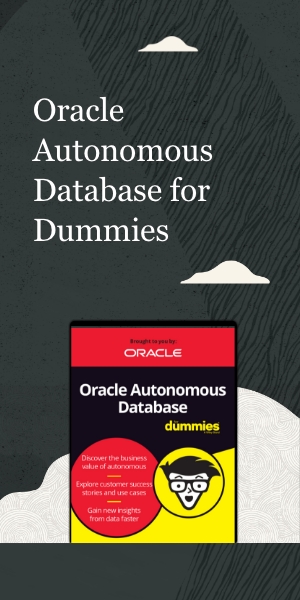 Oracle autonomous database for dummies
Oracle autonomous database for dummiesWhitepaper Freedom from mundane, manual database management
